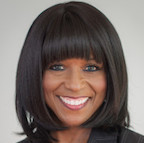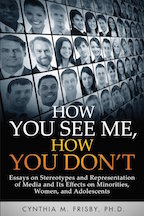 A new study conducted by Cynthia Frisby, an associate professor of strategic communication in the School of Journalism at the University of Missouri in Columbia, has found that Black athletes are more likely than their White peers to be stereotyped negatively in media outlets such as television and video games.
A new study conducted by Cynthia Frisby, an associate professor of strategic communication in the School of Journalism at the University of Missouri in Columbia, has found that Black athletes are more likely than their White peers to be stereotyped negatively in media outlets such as television and video games.
Dr. Frisby’s research found that media stories on Black athletes tended to focus on criminal activity or other negative attributes, whereas stories about White athletes were overwhelmingly positive. She found that of all online and print news stories written about criminal activity of athletes, 66 percent involved African Americans. Overall, 53 percent of all print and online media stories of Black athletes were negative, while only 27 percent of the stories about White athletes were negative.
 “True cultural sensitivity requires the eradication of racial and ethnic stereotyping; thus, journalists and reporters must reflect on how their own unfounded beliefs about race differences in sports likely contribute to the stereotyping of Black athletes as engaged in more criminal activity and innately physically gifted yet lacking in intelligence and strong work ethics,” Dr. Frisby said. “Not only does negative media coverage serve to legitimize social power inequalities, but also it is likely to undermine Black athletes’ achievements and contribute to stereotype threat.”
“True cultural sensitivity requires the eradication of racial and ethnic stereotyping; thus, journalists and reporters must reflect on how their own unfounded beliefs about race differences in sports likely contribute to the stereotyping of Black athletes as engaged in more criminal activity and innately physically gifted yet lacking in intelligence and strong work ethics,” Dr. Frisby said. “Not only does negative media coverage serve to legitimize social power inequalities, but also it is likely to undermine Black athletes’ achievements and contribute to stereotype threat.”
The study was presented at the recent International Communication Association conference and is one of 15 chapters in Dr. Frisby’s new book How You See Me, How You Don’t (Tate Publishing, 2015).
Dr. Frisby joined the faculty at the University of Missouri in 1998. She holds a master’s degree and a Ph.D. from the University of Florida’s College of Journalism and Mass Communications.












The study is not surprising with its surface level and apolitical findings by pointing out the obvious for anyone who has an inkling of intelligence in reference to the portrayal of Black athletes in the White racist media. Dr. Frisby, your study would have more validity if you minimally identified the media conglomerate owners from Time Warner, Walt Disney, Viacom, News Corp., CBS Corporation or NBC Universal. Thereby, your audience could fully understand the breadth and scope of this institutional racism that you fail to specifically identify. Further, if you unpacked (ok, disaggregate) the plethora of newspapers, radio stations, and magazines affiliated with the aforementioned, one can clearly see that racism is inculcated within the foundation of the entire media industry.
Yet, when so-called Black scholars operating within academe virtually refuse to articulate this within the parameters of their work, it only shows how much Black scholars are intellectually neutered.
Ditto Brother,
Hit them where it hurts,Boycott!!!!!!!!!!!!
At times the athletes themselves are reinforcing those stereotypes by the way they conduct themselves.